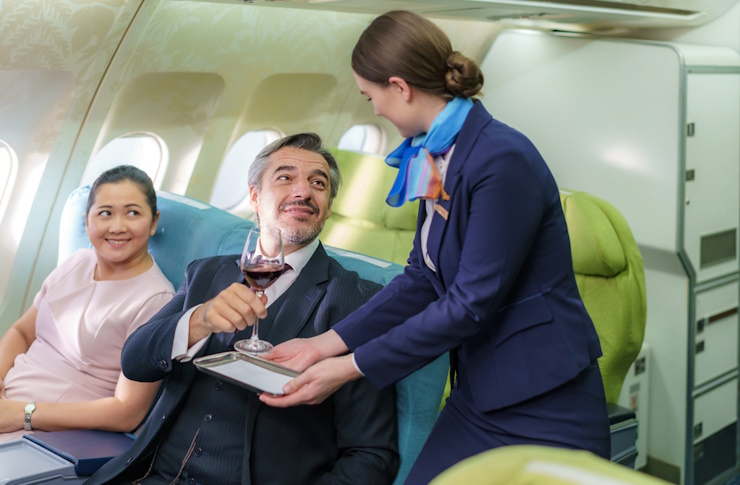Understanding Private Jet Attendant Careers: Skills, Roles, and Opportunities
From offering exceptional service at 40,000 feet to mastering safety protocols in luxury environments, private jet cabin crew roles involve more than many realize. This overview explores key responsibilities, evolving expectations, and the unique skill set often associated with these careers. Learn how professionals prepare for high-end aviation roles and what they typically consider when navigating this exclusive field.

What training is required to become a private jet attendant?
Becoming a private jet attendant requires specialized flight attendant training that goes beyond standard commercial airline preparation. While the basics of aviation safety and emergency procedures are essential, private jet attendants must also undergo additional training to meet the unique demands of their role. This training often includes:
-
Advanced customer service and etiquette
-
Gourmet food preparation and presentation
-
Wine and beverage service
-
Personal security and discretion
-
Cultural sensitivity and international customs
-
Luxury brand knowledge
Many aspiring private jet attendants start their careers with commercial airlines to gain experience before transitioning to the private sector. Others may enroll in specialized private aviation academies that offer comprehensive training programs tailored to the needs of luxury air travel.
How do private jet jobs differ from commercial airline positions?
Private jet jobs offer a distinct work environment compared to commercial airline positions. The key differences include:
-
Passenger demographics: Private jet attendants typically serve high-profile clients with exacting standards and personalized preferences.
-
Aircraft size: Private jets are smaller, requiring attendants to be more versatile and adaptable in their duties.
-
Flexibility: Schedules can be unpredictable, with last-minute changes and on-call availability often required.
-
Customization: Each flight may have unique requirements, from specific cuisine to particular entertainment options.
-
Autonomy: Private jet attendants often work independently or in small teams, requiring strong decision-making skills.
-
Attention to detail: The level of luxury and personalization demanded in private aviation necessitates meticulous attention to every aspect of the passenger experience.
These differences make private jet jobs both challenging and rewarding, offering a diverse and dynamic career path for those who thrive in high-end service environments.
What are the luxury cabin crew requirements for private jet attendants?
Luxury cabin crew requirements for private jet attendants are typically more stringent than those for commercial airlines. While specific requirements may vary depending on the employer or client, common criteria include:
-
Education: A bachelor’s degree is often preferred, particularly in hospitality, tourism, or business.
-
Experience: Many employers require 2-5 years of experience in luxury hospitality or high-end customer service roles.
-
Language skills: Fluency in multiple languages is highly valued, with English being essential and additional languages considered a significant asset.
-
Appearance: A polished, professional appearance is crucial, with some employers having specific height and weight requirements.
-
Interpersonal skills: Exceptional communication, diplomacy, and problem-solving abilities are essential.
-
Discretion: The ability to maintain confidentiality and handle sensitive information professionally is paramount.
-
Flexibility: Willingness to travel extensively, work irregular hours, and adapt to changing schedules is necessary.
-
Physical fitness: The job can be physically demanding, requiring good health and stamina.
Meeting these requirements demonstrates a candidate’s commitment to excellence and readiness for the demands of private jet service.
How important is aviation safety certification for private jet attendants?
Aviation safety certification is of utmost importance for private jet attendants. While luxury service is a key aspect of the role, ensuring passenger safety remains the primary responsibility. Private jet attendants must possess and maintain various certifications, including:
-
FAA (Federal Aviation Administration) certification: This is mandatory for all flight attendants, including those in private aviation.
-
Emergency procedures training: Regular recertification in areas such as fire fighting, evacuation procedures, and first aid is required.
-
CPR and AED certification: Knowledge of life-saving techniques is essential.
-
Security training: Understanding protocols for handling potential security threats is crucial.
-
Crew resource management (CRM) certification: This focuses on teamwork and communication in aviation settings.
-
Specific aircraft type ratings: Familiarity with the safety features and procedures of different private jet models may be required.
These certifications not only ensure compliance with regulatory standards but also provide private jet attendants with the skills and confidence to handle any situation that may arise during a flight.
What career opportunities and advancement paths exist for private jet attendants?
Private jet attendant careers offer various opportunities for growth and advancement within the aviation industry. Some potential career paths include:
-
Lead Flight Attendant: Supervising other attendants and managing cabin operations on larger private aircraft.
-
Corporate Flight Attendant Manager: Overseeing flight attendant teams for corporate flight departments.
-
VIP Services Coordinator: Managing ground services and logistics for high-profile clients.
-
Private Aviation Consultant: Providing expertise to individuals or companies entering the private jet market.
-
Training Instructor: Teaching new private jet attendants and conducting recurrent training programs.
-
Charter Sales Representative: Utilizing industry knowledge to sell private jet charter services.
-
Cabin Interior Designer: Applying expertise in luxury air travel to design private jet interiors.
Advancement often comes with increased responsibilities, higher pay, and the opportunity to work with even more exclusive clientele or larger, more luxurious aircraft.
In conclusion, private jet attendant careers offer a unique blend of luxury service, aviation expertise, and personal growth opportunities. While the requirements are demanding, the rewards can be significant for those who excel in this prestigious niche of the aviation industry. As private air travel continues to evolve, skilled and dedicated professionals will find abundant opportunities to build rewarding careers in this exciting field.




